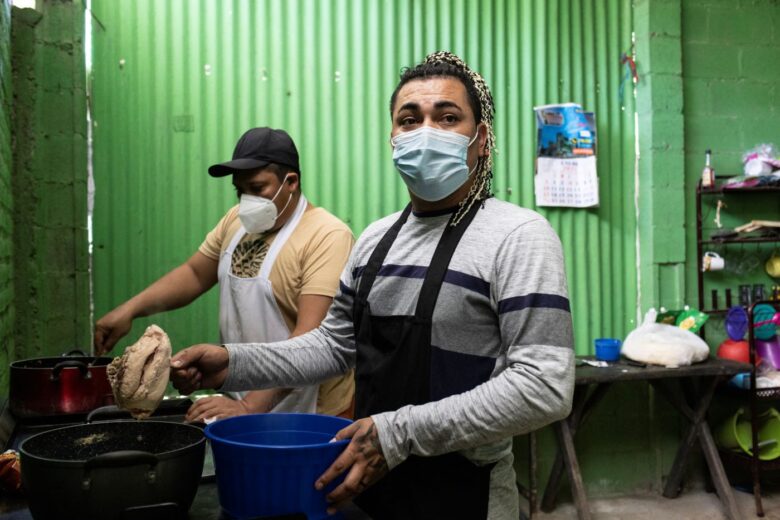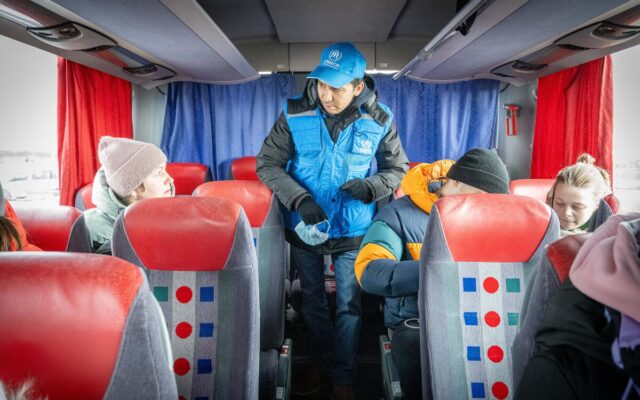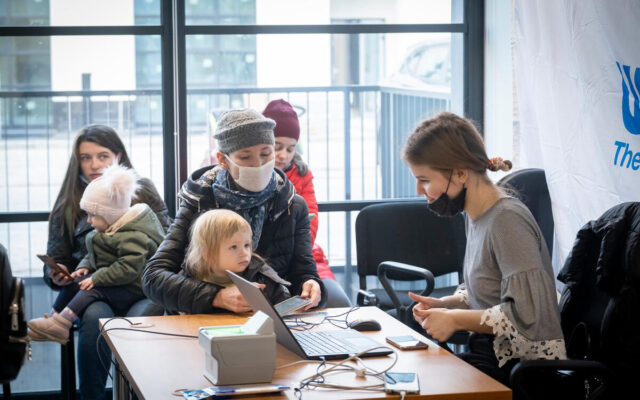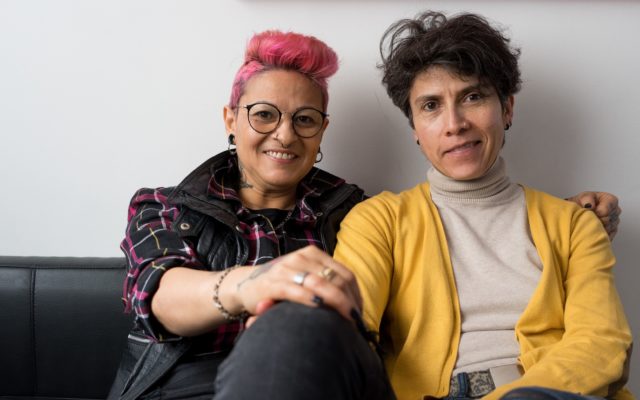“Perhaps my life would have been different if I had the support of my family.”
This Pride, read about what it means to be an LGBTIQ+ refugee through the eyes of Andrea*, a 30-year-old transgender woman from a rural area of El Salvador.
09.06.2022
© UNHCR/Nicolo Filippo Rosso
In El Salvador and neighbouring Honduras, in Central America, widespread gang violence is forcing people like Andrea to flee their homes.
These violent gangs often single out lesbian, gay, bisexual, transgender, intersex and queer (LGBTIQ+) people – extorting, threatening and sometimes even killing them. LGBTIQ+ people in the region often have no choice but to flee their homes in search of safety.
Initially, many seek safety in their own country and become part of the internally displaced population. To date, there are more than 318,000 internally displaced people in Honduras and El Salvador.
Andrea’s story is similar to the stories of many in Central America. Born into a religious family, Andrea struggled to win the acceptance of her father before a run-in with a ruthless gang forced her to flee her home.
We will keep working harder to guarantee #LGBTIQ+ #refugees, displaced and stateless people access the safety, inclusion, representation and support they deserve. Today, tomorrow, and every day.#Pride #PrideMonth pic.twitter.com/9C1aIdv9ye
— Joung-ah Ghedini-Williams (@JAGhedini) June 9, 2022
After the traumatic encounter, Andrea was taken in by the family of another trans woman, Perla*, and the two run a small business selling pupusas (popular flatbreads from El Salvador and Honduras) and other snack foods. While the two still struggle financially, they have found safety and acceptance together.

Andrea,* a 30-year-old transgender woman from a rural area of El Salvador, and her friend and fellow trans woman Perla*, 34, (left) prepare the snacks they sell to earn a meagre living. Photo: © UNHCR/Nicolo Filippo Rosso
“Perhaps my life would have been different if I’d had the support of my family,” Andrea tells UNHCR through tears.
The LGBTIQ+ community is among El Salvador’s most vulnerable, with gay, lesbian and transgender people singled out for abuse and violence that often ends up forcing them to flee their homes.
Around the world, UNHCR is committed to supporting LGBTIQ+ displaced people and refugees, like Andrea. UNHCR invests in training staff and partners on this issue to continually learn and improve.
Unfortunately, LGBTIQ+ refugees often face similar threats in their country of asylum to those they faced back home. UNHCR works with LGBTIQ+ rights organisations and refugee-led community groups to establish or support safe spaces where refugees and asylum seekers can find protection and access essential services, such as health care, legal aid, and psychosocial support, without discrimination.
To learn more about what it means to be an LGBTIQ+ refugee, visit this Medium post published by UNHCR.
For more information on how to help refugees around the world, visit our website.
*Names changed for protection reasons




